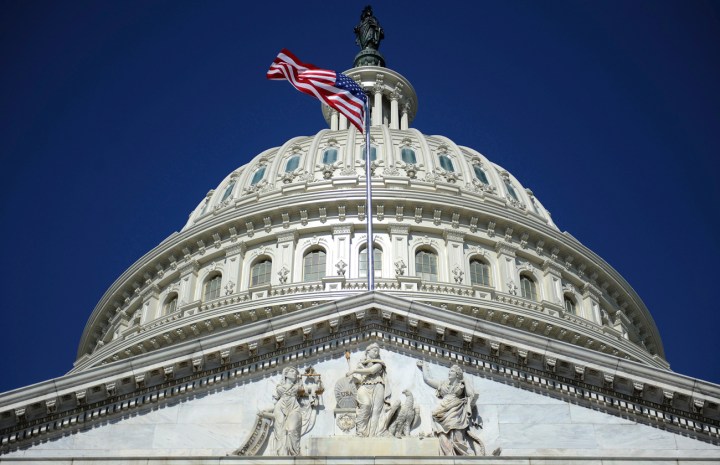The slavery days
Year 1619, the birth of America’s original sin (and the founding of the nation)

In the coming days, Americans will justifiably celebrate the 400th anniversary of the birth of representative self-government on their soil. But there is a second 400th anniversary that arrives just a few weeks later — the start of what would become the vast human tragedy of slavery on American soil. Together, they mark an important step in human progress, and what has sometimes been termed America’s original sin.
Tuesday 30 July is the exact date of the 400th anniversary of representative government on territory that eventually became part of the United States — and that became the origin of a chain of events that ultimately led to America’s still-ongoing experiment with representative democracy.
The colony of Virginia had been established a dozen years earlier as a deliberately commercial proposition in which a group of English gentlemen (the rough 17th-century equivalent of today’s venture capitalists) invested in this venture, on the assumption there would be a rich, easy payout for them after the inevitable discovery of vast fields of gold and silver.
After all, they had, right before their very eyes, the glittering example of the Spanish success with their conquests that eventually became Mexico, Peru, and Bolivia. In those conquered and exploited territories, the prodigious quantity of precious metals extracted and sent back in annual treasure fleets had been so large they had even begun to cause a wave of price inflation and the deflation of currencies in the vast European holdings of the Habsburgs, including Spain, Austria, Bohemia and the Spanish Netherlands — and well beyond.
But this tiny, struggling English settlement of Virginia did not yield its riches so quickly or easily, however. After early periods of near starvation among the gold-hunting colonists, and then only with the assistance of friendly Native Americans (if you must, think of the real Pocahontas) before they were driven out of the coastal settlement’s vicinity, the colonists in those initial years eventually came to rely on the protein abundance of the rivers and nearby woodlands and the cultivation of maize for carbohydrates. Then there was the trapping of pelts and the growing and curing of tobacco leaves (a product that quickly became the 17th century’s drug of choice). These would become exports as commercial products to pay for the company’s cost of doing business, thereby ensuring a successful ROI to keep those pesky investors back in England happy.
By 1618 the little colony was finally sufficiently stable that thoughts among those who had survived the lean, hard years were turning from sheer survival to the structure of their governance. The year before, a group in the Virginia colony had achieved agreement on a series of reforms that led to the “Great Charter,” a set of instructions sent to George Yeardley, who was about to begin his term as governor of the Virginia settlement in 1619.
London officials authorised Yeardley to oversee the selection of two male settlers from each of the 11 major settlement areas to attend a “General Assembly” with the purpose of passing laws and — hopefully — improving governance of the colony. Yes, the British parliament was a forebear of this step, but the growing sovereignty of the Virginia assembly was increasingly seen as deriving from the natural rights of citizens, rather than as a privilege conferred upon subjects from above.
This Tuesday marks exactly 400 years, right to the day, that those representatives first met at Jamestown in 1619. It was the initial meeting of a representative legislature in what would become the United States, paving the way for the experiment in democracy that continues to the present day. As Kathy Spangler, the executive director of the 2019 commemoration, the “American Evolution” committee observed:
“What happened at Jamestown July 30 to August 4 was the foundation of the democratic model in America. It has had bearing on what our democracy became.”
In time, this body became a model for America’s Congress, perhaps because so many of the country’s most important “Founding Fathers” — aside from John Adams, Alexander Hamilton and Benjamin Franklin — had served in that Virginia assembly. They had honed their skills at debate and self-government in that body, before planning their revolt against the British, and thereby giving voice to those Age of Enlightenment evocations of mankind’s inalienable rights to “life, liberty, and the pursuit of happiness”.
American self-government, in turn, would, in time, become an example for other nations around the globe in the centuries ahead.
The 2019 commemoration of Jamestown’s assembly is scheduled to feature a speech by President Trump, who, no matter what one thinks of him or his profoundly racialised, anti-democratic rhetoric intolerant of dissent, is the latest heir to the political heritage that began in Jamestown 400 years earlier. And it is right and proper this anniversary is celebrated with all due respect, even as, or perhaps precisely because, representative democracy and the continuing viability of such institutions in America and beyond are under pressure to buckle under the weight of the populism that is a growing threat.
But there is a second anniversary that requires a very different kind of remembrance. In August 1619, just a few weeks after that experiment with self-government, a privateering vessel, the White Lion, flying the flag of the newly independent Dutch Republic, arrived at Point Comfort, Virginia, downstream from Jamestown. According to a report by colonial leader John Rolfe, the ship had held no other cargo besides 20 Africans in chains, individuals who were then traded to Governor George Yeardley and a merchant, Abraham Peirsey, in exchange for provisions for the ship and its crew.
Rolfe, writing about this arrival and the ensuing commercial transaction, said:
“About the latter end of August, a Dutch man of Warr of the burden of a 160 tunnes arrived at Point-Comfort, the Commandors name Capt. Jope. He brought not any thing but 20 And odd Negroes, w[hich] the Governo[r] and Cape Merchant bought for victuals.”
These individuals — originally obtained by Portuguese slavers from what is now Angola, and then seized in turn by the privateer from a Portuguese ship as that ship had been bound for the Spanish port of Vera Cruz, Mexico — became the first recorded Africans to arrive in English North America. They were not arrivals arriving on their own stead.
Examining this moment in history, The Washington Post noted;
“The ‘20 And odd Negroes’ had been captured in 1619 from ‘the Kingdom of Ndongo’ in Angola. They were packed with more than 350 [other] enslaved Africans aboard the Sao Joao Baustista, a Portuguese slave ship that set sail from the coast of Africa, bound for what then was called Vera Cruz, on the coast of Mexico.
“ ‘The ship was overcrowded,’ said James Horn, the historian who serves as the president of the Jamestown Rediscovery Foundation. ‘It suffered horrible mortality on the voyage to Vera Cruz.’ And in the middle of the voyage on the high seas, the ship was attacked by two English pirate ships — the Treasurer and the White Lion [under that Dutch Republic flag] — hoping to steal gold. Instead, they found human cargo. The English boarded the ship and split the human cargo between the White Lion and the Treasurer…”
In previous years, the Virginia state planners might well have virtually ignored this second historic event. Now, organisers, The Post continued, “commemorating 1619 with ‘American Evolution: Virginia to America 1619-2019’, have made a deliberate effort to be more inclusive in telling the history of the early colonists and Native Americans in Virginia.
“ ‘In 2019, we have the opportunity to move forward in appreciating the merging of African, English and Native American history in the Jamestown region,’ said Kym Hall, superintendent of Colonial National Historical Park. ‘We want people of all backgrounds to see themselves having a history here.’ This is, after all, the veritable ground zero of slavery and the slave trade for America.
“Kristopher Peters, museum educator at the Hampton History Museum, said the story of the first Africans is still being pieced together. Much of what historians know about the first Africans in the English colonies was discovered about 20 years ago, when Spain opened its archives to researchers…
“ ‘In a matter of hours,’ Peters said, ‘they subdue the Spanish ship, come aboard and find no gold and silver. Instead they find African slaves down inside. Now they have a problem. They have paid a lot of money to outfit this ship and come over here. They cannot return empty-handed. They don’t have the provisions to do that. They take 50 or 60 of these Africans, put them on these two ships [the White Lion and its companion ship], divide them in half and they will come to the nearest English port, which happens to be Virginia, specifically Port Comfort’.”
Lekan Oguntoyinbo, writing on the Quartz.com website, added:
“In 2017, the United States Congress passed the ‘400 years of African-American History Commission Act’ which is charged with developing activities throughout the country to commemorate the arrival of Africans in the English colonies in 1619, an event widely regarded as the commencement of the Trans-Atlantic Slave Trade in North America. For more than two years, the ‘Hampton 2019 Commemoration Commission’ and Virginia’s ‘2019 Commemoration, American Evolution’ have sponsored events highlighting the forced arrival of Africans while also touting significant points of pride in Virginia’s history.
“Throughout the country there are scores of events planned all year, including symposiums, films, exhibits, historical reenactments, dance performances, festivals, lectures, poetry readings and panel discussions on a range of subjects such as reparations to mark the 400th anniversary.” The commemoration now includes events in Ghana as well, where these are inevitably leaning on the promotion of American tourism to Ghana as a centrepiece for its participation. As Oguntoyinbo noted:
“President Nana Akufo-Addo declared 2019 ‘The Year of Return’, kicking off a series of programs aimed at encouraging blacks in the diaspora to visit or perhaps consider resettling in the motherland.”
The history of slavery in the Western Hemisphere did not, of course, begin in Jamestown in 1619. The Spanish and Portuguese had already been engaged in the slave trade for a century.
Soon the French, Dutch, Danes and English would follow suit, in order to supply their Caribbean island possessions with a supply of labour for the cultivation of plantation crops such as sugar, for which there was a virtually unlimited demand in their respective home countries. Conditions for slaves were so dreadful and mortality was so high, new slaves were constantly required if the sugar plantations were to be able to deliver their precious crop into the global trading system.
Back in colonial Virginia, meanwhile, the institution of slavery — and the fundamental differences between it and the parallel institution of time-limited indentured servitude, largely of European settlers — only became fully and totally codified in 1705, locking almost all African Americans into permanent servitude .
The irony, of course, was that this very legal architecture had been achieved by the very same Virginia legislature that had been born, back in 1619, to promote the self-government and the rights of the inhabitants of the new colony. DM



















 Become an Insider
Become an Insider